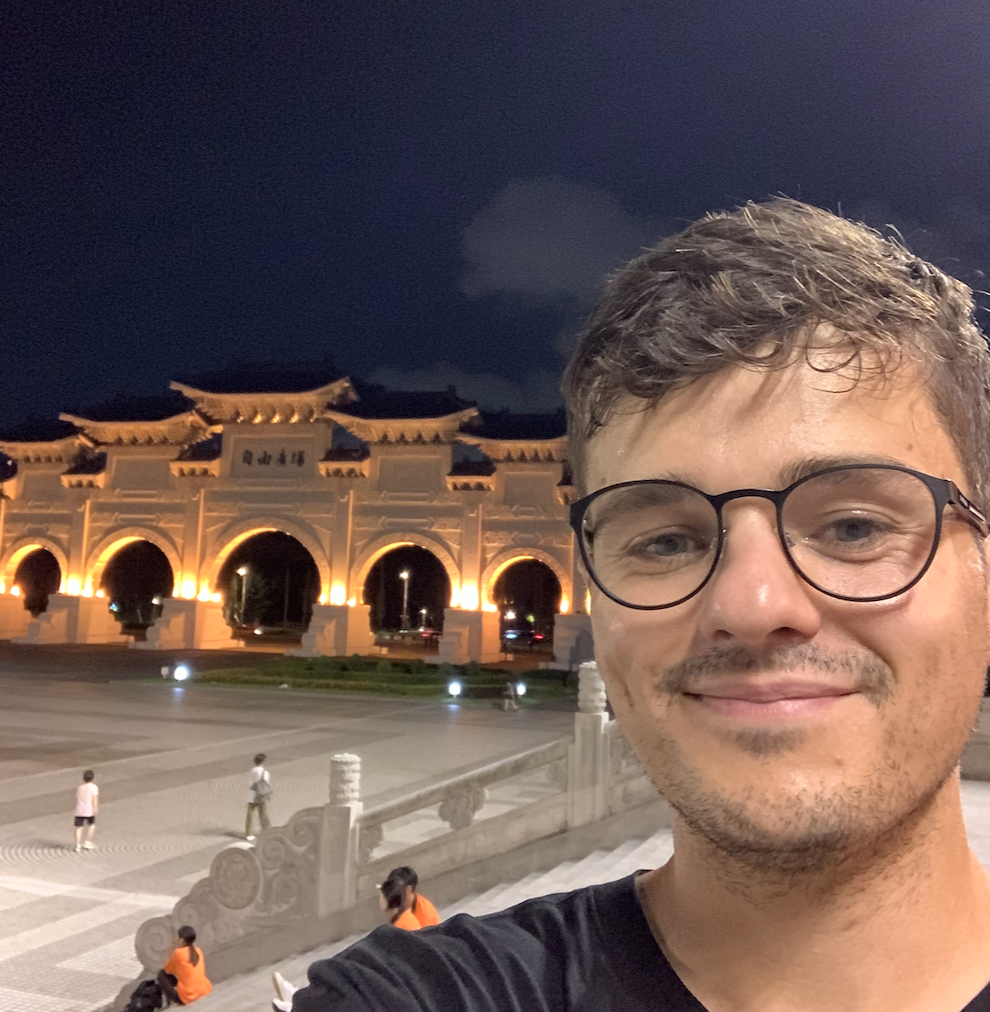Date: 12/10/2025
Author: Max Dixon, University of Portsmouth
 Bio:
Bio:
Max Dixon is an SCDTP-funded PhD candidate at the University of Portsmouth, researching British foreign policy approaches towards Taiwan since 1996. His research interests rest on the enduring legacies of British colonialism in the construction of British foreign policy.
In his seminal play on the chasms between state schooling and Britain’s universities, The History Boys, English playwright Alan Bennett through the character Hector muses on the disparities between the pursuit of knowledge and the physical environments in which it is pursued, “Cloisters, ancient libraries … I was confusing learning with the smell of cold stone”.
Upon entering the Palace of Westminster a similar confusion arises. The ancient hammer-beam roof, the storied stone, that has seen all of the machinations of British history from trials of Kings to Empires, and the power that echoes around the cavernous space as MPs, Lords, Baronesses come and go feels a world away from solitary doctoral research. The quiet realities of which entail illusive but vital scraps of paper, graduatingly browning coffee cups and looming deadlines. As such, it is easy to think of research and policy as separate, where policy is something that happens elsewhere, in essence confusing policy and legislation with the smell of cold stone, and green leather.
However, in early September, such preconceptions quickly fell away on an SCDTP, ESRC-funded, visit to Parliament organised by Dr Jane Parry, UK Parliament Thematic Research Lead for Business, Economics and Trade, and Professor Ajit Nayak, Research in Practice Lead (Academic) at the SCDTP. Not only by way of a highly illuminating tour of Parliament, where MPs and Lords now happily vote with electronic lanyards(!), but also through a fascinating session on pursuing policy impact in Parliament organised by Dr Parry and sponsored by Southampton Test MP Satvir Kaur. In stark contrast to the panelled voting lobbies and gaudy Victorian bling of the House of Lords, the event took place in one of the many buildings adjacent to Parliament. Home to the offices of MPs and their staff, it was akin more to the modern buildings of universities than the Gothic grandeur of Parliament, a building where policies are imagined, scrutinised and supported, and thus it served as an apt location for the session demystifying the policy process, severing the imagined boundaries between the cloistered conceptions of Parliament and the fundamental work of research and policymaking.
The session was opened by Dr Lauren Sullivan MP, who outlined her own story from academia-obtaining a doctorate at the University of Dundee- to serving as a local councillor and then being elected as an MP in 2024. In the time intensive world of politics, she argued, it is vital to take all opportunities to share your key findings in digestible formats, in particular blogs, that enable MPs and their staff to glean invaluable research insights safe in the knowledge that they have been developed through academically rigorous means. In a rousing speech that touched on the importance of thorough research as an antidote in an era of misinformation, she left the SCDTP cohort in no doubt about the importance of sharing research findings with policymakers, to help create stronger, fairer legislation.
Matthew Keep, a subject specialist in the Economic Statistics and Policy team in the House of Commons Library delivered the next session, providing a valuable insight into how the House of Commons Library, a vital resource for MPs seeking to understand and craft responses to emerging policies, utilise research in drafting their impartial guidance to MPs. Placing great emphasis on the importance and value of academic research and how it shapes MP’s approaches, he also provided a valuable insight into his own journey into Parliament, from local government in Sutton to a central role in informing MPs on British economic policy. In particular he outlined the importance of maintaining and utilising quantitative research skills in producing research that can directly influence policy.
The next session was given by David Slater, Head of the Scrutiny Unit, who explored the fundamental importance of Select Committees and the role they play in enabling Parliament to scrutinise government policy. As with all of the speakers, he was passionate about the vitality of research in that scrutiny, encouraging those present to look for opportunities to submit evidence when called for by Select Committees. Such evidence can be collated then circulated by the Knowledge Exchange Unit, where academic research plays a key role in scrutinising government policy.
Last but most definitely not least was Natasha Mutebi, Social Science Lead at POST (Parliamentary Office of Science and Technology), whose memorable introduction to securing a role in Parliament served as a testament to resilience, speculative job applications and networking, all in pursuit of a career in an at times unforgiving market. She spoke with real passion and precision on recognising the fundamental worth of not only developing our research skills, but advocating for them as well, and of their importance in the policy processes that shape the UK’s laws. Her talk rounded off an invaluable afternoon, and after a few more pictures slowly the group headed in the direction of trains and buses back to Brighton, Chichester, Southampton and Portsmouth.
Yet, upon sitting down at my desk the following day, in a building yet to fully repopulate as the Autumn term starts up once again, the importance and urgency of all our research felt all the more tangible thanks to the expertise gleaned from the trip to Parliament, recognising that the potential audiences for research are far greater than they can sometimes seem to be. As always, the opportunity to feel part of a community undertaking diverse and demanding research in a host of different fields is a singular pleasure and a fundamental part of the appeal of being a student with the South Coast Doctoral Training Partnership, and these opportunities never fail to embolden my motivation and focus on the PhD journey, thank you to Dr Parry and Professor Ajit for organising!